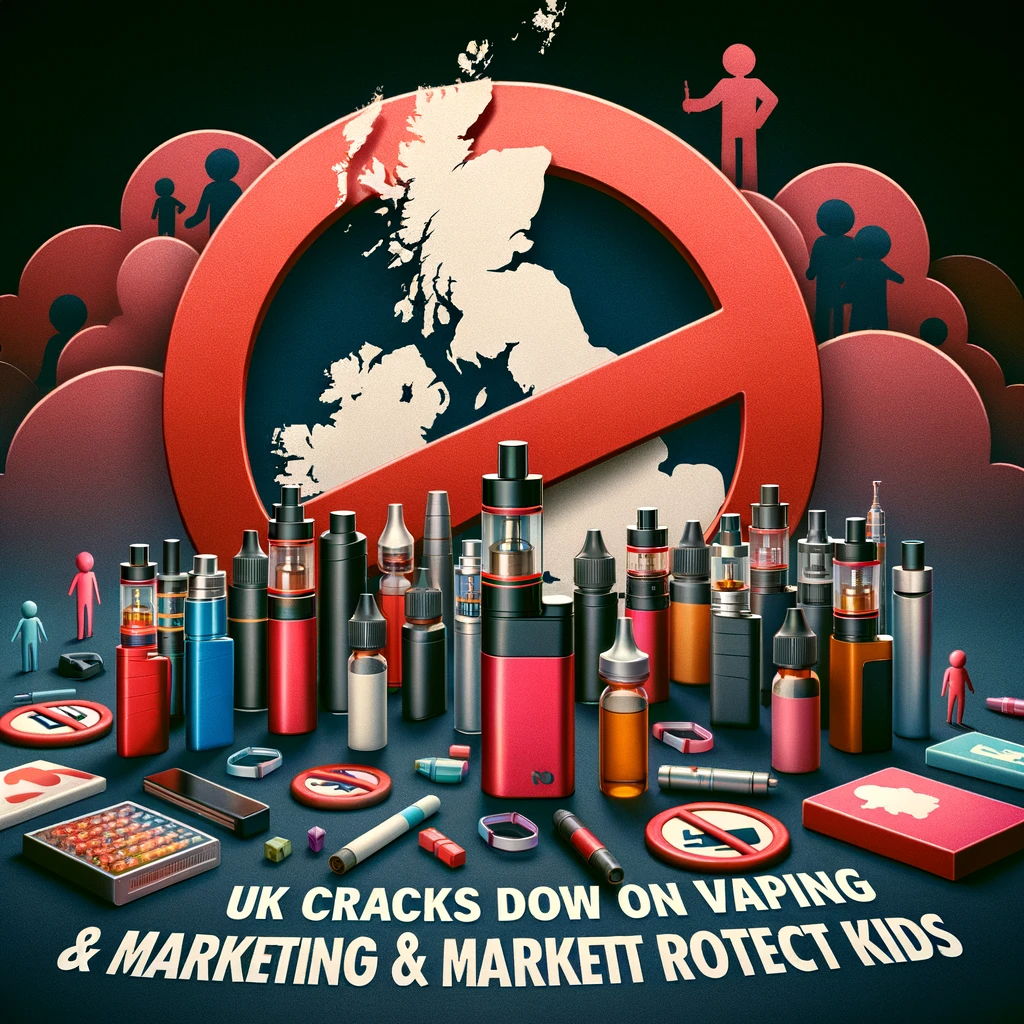In light of rising youth vaping rates and serious health incidents like 12-year-old Sarah Griffin’s vape-related lung damage, the UK government aims to impose strict regulations on vaping sales, marketing, and access to protect children.
The proposed plan would rein in vaping advertisements targeting teens and prohibit retail sales to minors. This crackdown takes inspiration from India’s comprehensive vaping ban to safeguard vulnerable youth.
UK Youth Vaping Concerns
According to UK health data, over 15% of 11-17 year olds have tried vaping, with 4% reporting regular use. This reflects a growing trend of underage vaping, often driven by flavors and marketing aimed at teens.
Vapes come in youth-friendly varieties like fruit, candy, desserts and beverages. Disposable devices feature bright colors and sleek designs. Advertisements often depict young models and influencers using vape devices recreationally.
The addictive nature of nicotine poses risks to developing brains. But many teens view vaping as harmless.
Cases like Sarah Griffin, who fell into a coma from vaping-related lung illness, illustrate the potentially severe consequences. After recovering, doctors found Griffin suffered permanent lung damage.
To protect vulnerable youth, the UK government is consulting the public on proposed regulations to restrict vape access and curb appeal to adolescents.
Proposed UK Vaping Regulations
The UK government’s vaping crackdown aims to:
- Prohibit retail sales of vapes to minors under age 18
- Ban marketing that appeals to youth
- Restrict advertising in public spaces frequented by adolescents
- Require plain packaging with health warnings
- Limit nicotine concentrations to lower addiction risk
- Increase fines for violations of vaping regulations
These measures would bring vape regulations closer in line with traditional tobacco products. By decreasing visibility and availability to teens, the UK hopes to stem the rising tide of underage vaping.
Taking Inspiration From India’s Vaping Ban
India banned production, sale, and import of nearly all vaping devices in 2019 under the Prohibition of Electronic Cigarettes Act (PECA).
The legislation covers e-cigarettes, heat-not-burn products, e-hookahs and other electronic nicotine delivery systems. This blanket ban aims to protect youth and discourage nicotine addiction.
Per parenting coach Sushant Kalra:
“Many school-going children are taking up vaping under the false assumption that it carries no risks or dangers. This alarming trend is troubling because young individuals may unknowingly become addicted.”
By implementing a complete prohibition, India confronted the vaping epidemic threatening its youth population.
The UK is now following India’s model by targeting accessibility and appeal of vaping devices to adolescents through strict marketing and sales regulations.
Ongoing Efforts Needed To Curb Youth Vaping
While the proposed UK regulations reflect progress, experts emphasize continued efforts will be necessary to reduce youth vaping to minimum levels.
Potential supplementary actions include:
- Ongoing monitoring of vape advertisements directed at teens
- Stepped up enforcement of sales age requirements
- School vaping prevention and cessation programs
- Public awareness campaigns highlighting vaping risks
- Mandatory retailer training on underage sales prevention
- Parent education on risks and monitoring teen vaping behaviors
With vaping risks and youth usage still poorly understood, cases like Sarah Griffin’s serve as sobering reminders that vapes can cause devastating harm. All countries must remain vigilant and proactive in protecting adolescent health and safety.
UK’s Vaping Crackdown: A Step in the Right Direction
The UK government’s push to impose strict regulations on youth access and appeal of vaping products follows the example set by India’s sweeping ban.
While the UK is not implementing a complete prohibition, limiting sales, advertising, flavors, and nicotine levels to protect teens demonstrates increasing concerns around youth vaping.
By reducing visibility and availability of vapes to adolescents, the proposed regulations are a positive step towards reversing the troubling trend of underage vaping. Ongoing efforts across all fronts will be key to ensuring the regulations translate into improved youth health outcomes.
- UK Tobacco Ban 2026: The “Smokefree Generation” Law - March 4, 2026
- Myanmar Enacts Total Ban on E-Cigarettes and E-Shisha - February 25, 2026
- UK Announces Mandatory Vape Tax and Duty Stamps from 2027 - February 10, 2026


